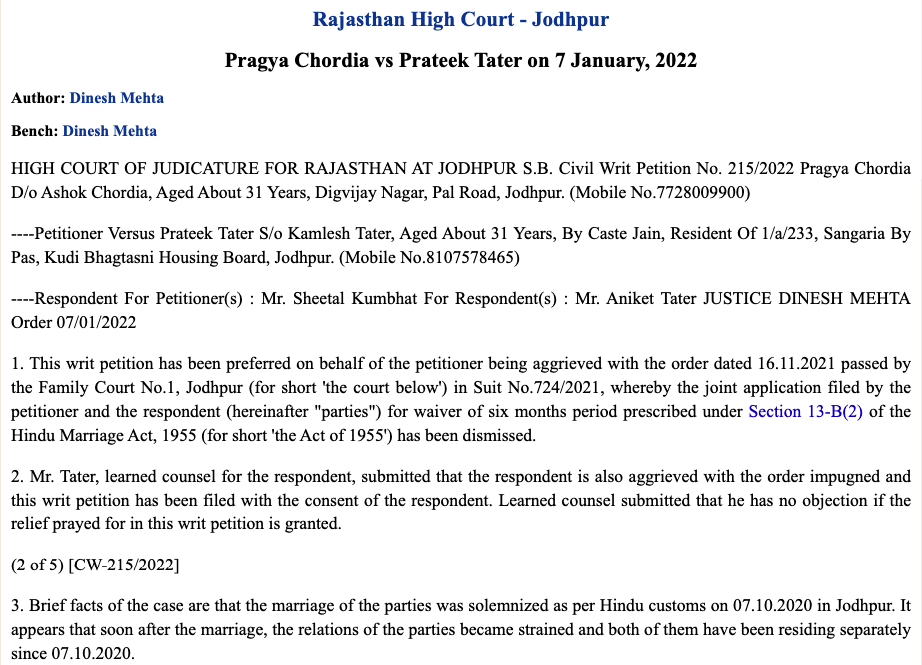Introduction: The case of Pragya Chordia vs. Prateek Tater involves a writ petition filed before the Rajasthan High Court, challenging the dismissal of a joint application for waiver of the statutory period under Section 13-B(2) of the Hindu Marriage Act, 1955 (the Act).

Background: The parties, Pragya Chordia and Prateek Tater, got married on 07.10.2020 in Jodhpur. However, their marriage encountered difficulties soon after, leading to their separation since the same day. Despite efforts at reconciliation, they jointly applied for divorce by mutual consent under Section 13-B of the Act on 26.10.2021. They also filed a joint application for waiver of the statutory six-month period prescribed under Section 13-B(2) of the Act.
Key Arguments: The counsel for both parties argued that the conditions for waiving the statutory period, as laid down by the Supreme Court in Amardeep Singh vs. Harveen Kaur, were fulfilled in this case. Both parties were educated individuals who had mutually decided to end their marriage after thorough deliberation and attempts at reconciliation.
Court’s Observations: The court observed that the parties’ decision to end their marriage was not made in haste but after due consideration. It noted that the conditions specified in the Amardeep Singh case for waiving the statutory period were satisfied in this instance.
Court’s Decision: The Rajasthan High Court allowed the writ petition, setting aside the lower court’s order and granting the waiver of the statutory six-month period under Section 13-B(2) of the Act. The court exercised its extraordinary powers under Article 226 of the Constitution of India to waive the waiting period. The parties were directed to appear before the lower court for the passing of the divorce decree on 14.02.2022.
Conclusion: The court’s decision underscores the importance of mutual consent and the autonomy of individuals in matters of divorce. By granting the waiver of the statutory waiting period, the court facilitates the parties’ desire to end their marriage amicably and expeditiously. This case highlights the court’s role in upholding the principles of justice and facilitating the resolution of marital disputes.
Reference: https://indiankanoon.org//doc/149663793/